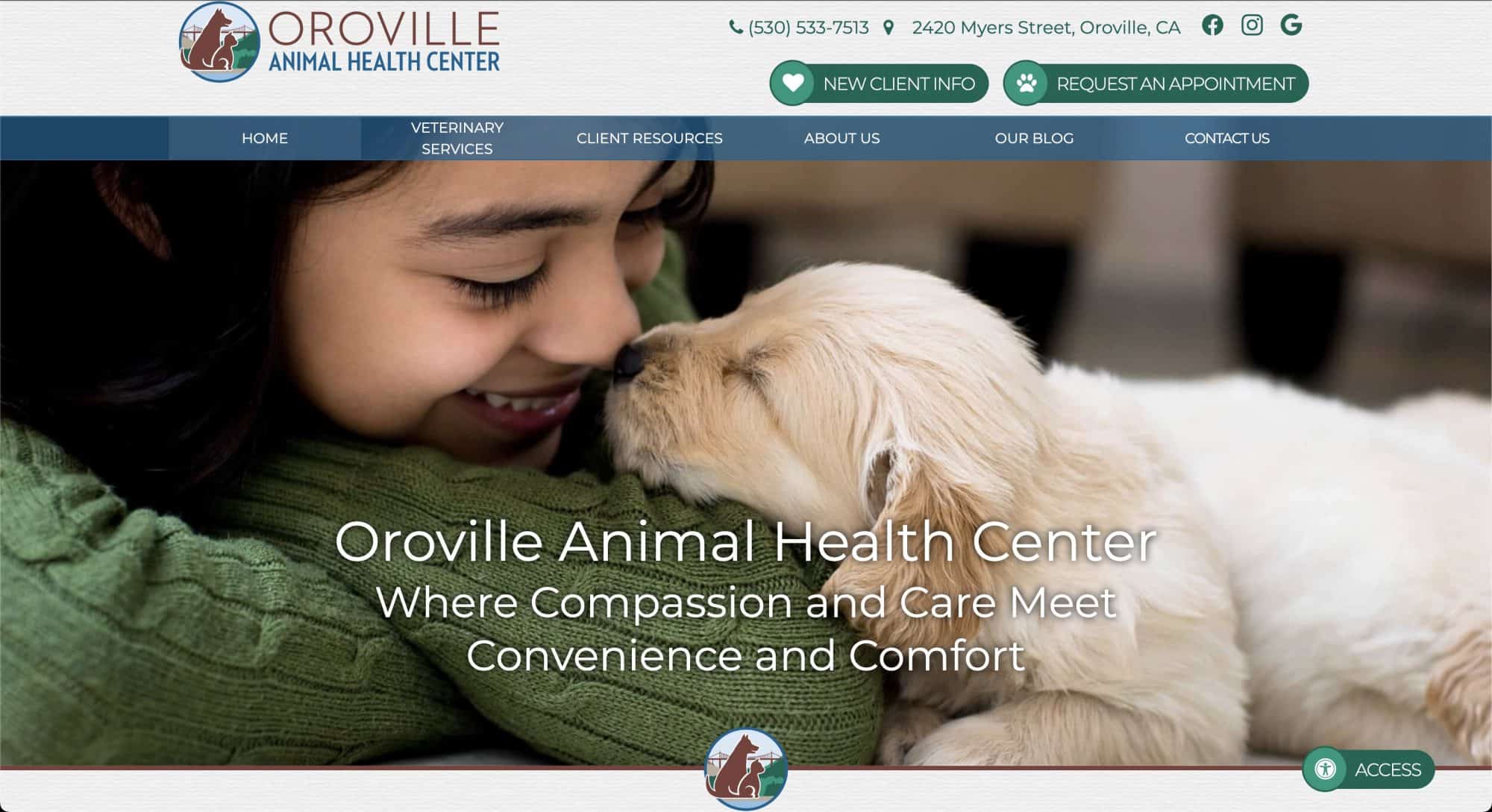Posts in Category: Veterinary Websites
Do You Know Where To Find Your Future Clients Online?

With constant changes to platforms and algorithms, it can be difficult to stay on top of digital marketing even if you have the time to do it. Whether you are a person reminiscing about the days when marketing meant purchasing a Yellow Pages ad or trying to keep up with the latest Google updates, today’s digital world can seem completely out of control. Not only are there multiple platforms, but also multiple generations of users, and in order to market well, you have to understand your audience.
AI-Generated Content: No Match for Real Writers with Veterinary Experience

Artificial intelligence (AI) is having a real moment. With uses that range from the medical field to self-driving cars, machine learning-enabled technology is making many facets of life easier. Some companies are even using it to create marketing content. While there are definitely important uses for the technology, when producing veterinary content, is AI really the way to go?
2023 Is Almost Here! Ideas To Get You to the End of the Year & Beyond

Somehow, 2022 went POOF and 2023 is quickly sneaking up on us. December is a month packed with multiple holidays and end-of-year business needs. Not to mention, the VMX convention occurs right at the beginning of the year. Before this year officially ends, you must start considering your marketing for 2023.
5 Veterinary Website Design Trends for 2023

As hard as it might be to believe, we are quickly approaching 2023. As we officially transition into a new calendar year, now is the time to start thinking about how to get the best veterinary website design to make sure your practice is front-and-center. Beyond Indigo Pets is bringing you some of the top trends in website design for veterinary clinics in the new year:
Google’s New Helpful Content Update: What You Need to Know

While Google rolls out hundreds of minor tweaks to its algorithm each year, occasionally they release a major update to the platform that impacts nearly all websites across the internet. Website owners should take particular notice of these major updates, especially since they often require changes to website behavior. As of Thursday, August 18th, 2022, Google has released a new major update called “Google’s Helpful Content Update,” and it’s packed full of important details for website owners regarding the content on their website. Our Beyond Indigo Pets team of certified Google experts is here to help explain Google’s Helpful Content Update, and share tips on how to improve and maintain your website’s SEO ranking under the new algorithm.
The Dos and Don’ts of a Veterinary Practice Website

Your website is an extension of your practice, and is essentially an online waiting room for your customers. It’s a space where they can learn more about your business, get to know you, and make sure you can provide the right kind of care for their pets. It’s important to make sure your website is welcoming and inviting, and is a representation of your business.
We’ve put together a quick list of the Dos and Don’ts of a veterinary website, to help you achieve your marketing goals and represent your veterinary space in a positive way online.
Best Veterinary Websites—What Makes the Best Designs?

In just one month, there are about 97 billion local searches on Google. Your veterinary website is the first impression you give the world, which is why it is essential to create a website design that will appeal both to potential customers and to search engines. Here are some of our favorite design elements for websites for veterinarians:
5 Veterinary Website Design Trends

Veterinary website design is constantly evolving alongside the internet and all its emerging technologies. What was cutting edge a few years ago can quickly become dated and stand out for all the wrong reasons. The following veterinary web design trends all work individually, but taken together, reinforce each other and create a holistic aesthetic for your veterinary website.
Focus On Content with Vet Website Design
With internet technologies becoming more complex and sophisticated, it can be easy to lose sight of what is most important: content. Forget all the bells and whistles and focus on the reason people are visiting your site. As a veterinary website, people are coming for information, therefore the site should be designed around delivering that information in the most intuitive way possible.
Get to Know the Basics of a Veterinary Website

It’s no secret that the world has changed since the beginning of the COVID-19 pandemic. More than ever before, people are checking websites and digital platforms for important information about the businesses they choose to spend with before they decide to make a purchase or become a customer.
Your veterinary website is a direct reflection of your practice. It should give visitors a clear idea of who you are, what you do, and how you operate. A great tip is to think of your website as a digital waiting room, where visitors can learn about your services, make appointment requests, and get information that will impact the health of their beloved pet. Does your website have all they need?

